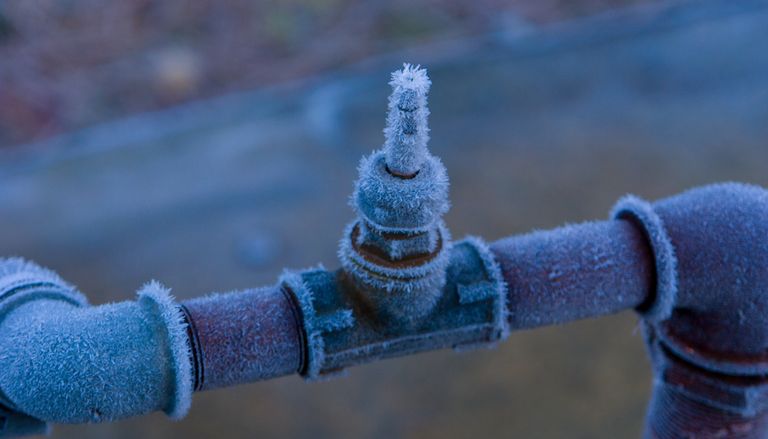How do you feel when it comes to How To Avoid Freezing Pipes?

Winter can wreak havoc on your pipes, particularly by freezing pipelines. Below's exactly how to stop it from happening and what to do if it does.
Introduction
As temperature levels drop, the danger of icy pipelines increases, potentially bring about costly repair work and water damage. Comprehending just how to stop icy pipelines is crucial for property owners in cold environments.
Avoidance Tips
Shielding at risk pipelines
Cover pipelines in insulation sleeves or make use of warm tape to secure them from freezing temperatures. Focus on pipes in unheated or outside areas of the home.
Heating techniques
Maintain indoor areas effectively heated up, especially locations with plumbing. Open closet doors to enable cozy air to flow around pipes under sinks.
How to recognize frozen pipelines
Try to find decreased water circulation from taps, unusual smells or noises from pipes, and noticeable frost on exposed pipes.
Long-Term Solutions
Architectural adjustments
Think about rerouting pipelines far from outside walls or unheated areas. Include added insulation to attic rooms, basements, and crawl spaces.
Upgrading insulation
Invest in top notch insulation for pipelines, attics, and wall surfaces. Correct insulation helps preserve regular temperatures and minimizes the threat of icy pipelines.
Protecting Outdoor Pipes
Yard pipes and outside faucets
Disconnect and drain pipes garden tubes before winter season. Mount frost-proof spigots or cover exterior faucets with shielded caps.
Comprehending Icy Pipelines
What causes pipes to freeze?
Pipes ice up when exposed to temperature levels below 32 ° F (0 ° C) for expanded durations. As water inside the pipelines freezes, it increases, taxing the pipe walls and possibly triggering them to break.
Dangers and problems
Frozen pipes can bring about water system disruptions, property damage, and costly fixings. Ruptured pipelines can flooding homes and trigger extensive structural damage.
Signs of Frozen Pipeline
Determining frozen pipes early can stop them from breaking.
What to Do If Your Pipelines Freeze
Immediate actions to take
If you think frozen pipelines, keep faucets open up to relieve stress as the ice thaws. Utilize a hairdryer or towels taken in warm water to thaw pipelines slowly.
Conclusion
Protecting against icy pipelines calls for positive steps and fast actions. By understanding the reasons, signs, and preventive measures, homeowners can shield their plumbing throughout cold weather.
Helpful Tips to Prevent Frozen Pipes this Winter
UNDERSTANDING THE BASICS: WHY PIPES FREEZE AND WHY IT’S A PROBLEM
Water freezing inside pipes is common during the winter months, but understanding why pipes freeze, and the potential problems it can cause is crucial in preventing such incidents. This section will delve into the basics of why pipes freeze and the associated problems that may arise.
THE SCIENCE BEHIND FROZEN PIPES
When water reaches freezing temperatures, it undergoes a physical transformation and solidifies into ice. This expansion of water as it freezes is the primary reason pipes can burst. As the water inside the pipe freezes, it expands, creating immense pressure on the walls. If the pressure becomes too great, the pipe can crack or rupture, leading to leaks and water damage.
FACTORS THAT CONTRIBUTE TO PIPE FREEZING
Low Temperatures: Extremely cold weather, especially below freezing, increases the risk of pipes freezing. Uninsulated or Poorly Insulated Pipes: Pipes located in unheated areas, such as basements, crawl spaces, or attics, are more prone to freezing. Insufficient insulation or lack of insulation altogether exacerbates the problem. Exterior Wall Exposure: Pipes running along exterior walls are susceptible to freezing as they encounter colder temperatures outside. Lack of Heating or Temperature Regulation: Inadequate heating or inconsistent temperature control in your home can contribute to frozen pipes. PROBLEMS CAUSED BY FROZEN PIPES
- Pipe Bursting: As mentioned earlier, the expansion of water as it freezes can cause pipes to burst, resulting in significant water damage.
- Water Damage: When pipes burst, it can lead to flooding and water damage to your property, including walls, ceilings, flooring, and personal belongings.
- Structural Damage: Prolonged exposure to water from burst pipes can compromise the structural integrity of your home, leading to costly repairs.
- Mold and Mildew Growth: Excess moisture from water damage can create a favorable environment for mold and mildew growth, posing health risks to occupants.
- Disrupted Water Supply: Frozen pipes can also result in a complete or partial loss of water supply until the issue is resolved.
WHY CERTAIN PIPES ARE MORE PRONE TO FREEZING
- Location: Pipes located in unheated or poorly insulated areas, such as basements, crawl spaces, attics, or exterior walls, are at higher risk of freezing.
- Exterior Pipes: Outdoor pipes, such as those used for irrigation or exposed plumbing, are particularly vulnerable to freezing as they are directly exposed to the elements.
- Supply Lines: Pipes that carry water from the main water supply into your home, including the main water line, are critical to protect as freezing in these lines can affect your entire plumbing system.
- Underground Pipes: Pipes buried underground, such as those connected to sprinkler systems or outdoor faucets, can be susceptible to freezing if not properly insulated.
https://busybusy.com/blog/helpful-tips-to-prevent-frozen-pipes-this-winter/

I was made aware of that editorial about Prevent Frozen Pipes from an associate on a different web property. Are you aware of somebody else who is fascinated by the subject? Feel free to promote it. Bless you for your time. Come back soon.
Call Today